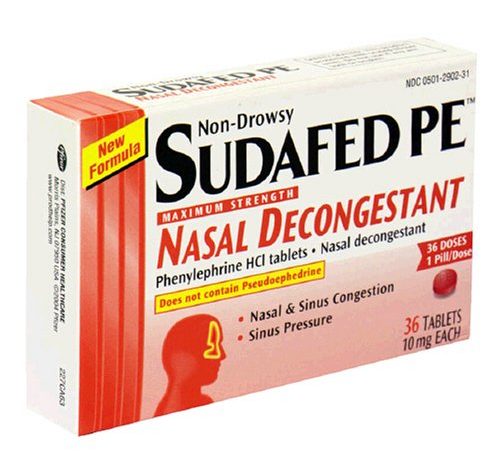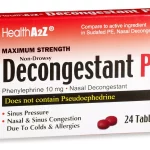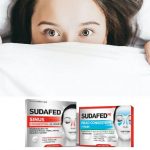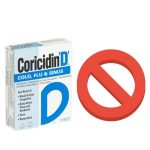FDA Panel Says Common OTC Decongestant, Phenylephrine, Ineffective

In a significant development, a key advisory panel for the U.S. Food and Drug Administration (FDA) has determined that over-the-counter (OTC) cold remedies containing phenylephrine, including popular brands like Sudafed PE, Vicks Sinex, and Benadryl Allergy Plus Congestion, are essentially ineffective in clearing nasal congestion. The panel voted unanimously in favor of this decision, casting doubt on the utility of such medications that countless individuals have turned to for relief from stuffy noses over the decades.
Phenylephrine has been a staple ingredient in cold remedies since the 1970s and is available in various forms, including liquid, pills, and nasal sprays. Notably, this ruling does not encompass the nasal spray version of phenylephrine.
The prominence of medications containing phenylephrine surged after stricter regulations were imposed on the sale of the highly effective decongestant pseudoephedrine in 2005, primarily aimed at curbing the methamphetamine epidemic. Consequently, more than 242 million bottles or packages of phenylephrine-containing cold remedies were sold in 2022, a substantial increase compared to the approximately 51 million cold products containing pseudoephedrine, according to FDA briefing documents.
However, recent clinical trials, laboratory studies, and evidence reviews raised doubts about the efficacy of phenylephrine. These newer trials suggested that the recommended dosage of phenylephrine is ineffective for allergy-related congestion. Furthermore, the FDA identified issues with the original studies used to approve phenylephrine, particularly concerning methodology and statistics.
One of the core issues is that the body does not absorb phenylephrine efficiently enough to make it a useful decongestant. While higher doses might potentially be more effective, they could also significantly raise blood pressure, posing a risk to individuals with hypertension.
The Consumer Healthcare Products Association (CHPA), an industry group, disputed the FDA’s stance, emphasizing phenylephrine’s benefits and its role in public health. They also urged the FDA to consider the impact on consumers, asserting that limiting choice and availability of these products could strain the U.S. healthcare system.
Nonetheless, some doctors have long been cautious about recommending phenylephrine-based products to patients. They have favored alternatives such as pseudoephedrine and oxymetazoline nasal sprays for the common cold. Pseudoephedrine, while subject to purchasing restrictions in most states, remains a viable option and is obtainable from pharmacists with a valid driver’s license. This barrier, though somewhat inconvenient, helps deter its illicit diversion for methamphetamine production.
Patients with high blood pressure may also consider antihistamines over decongestants. This development underscores the importance of consulting healthcare professionals for the most appropriate and effective treatment options, especially in light of this new FDA advisory panel ruling.
As the FDA deliberates on the future of oral decongestants containing phenylephrine, individuals seeking relief from congestion should remain informed about the evolving recommendations for managing their symptoms.





